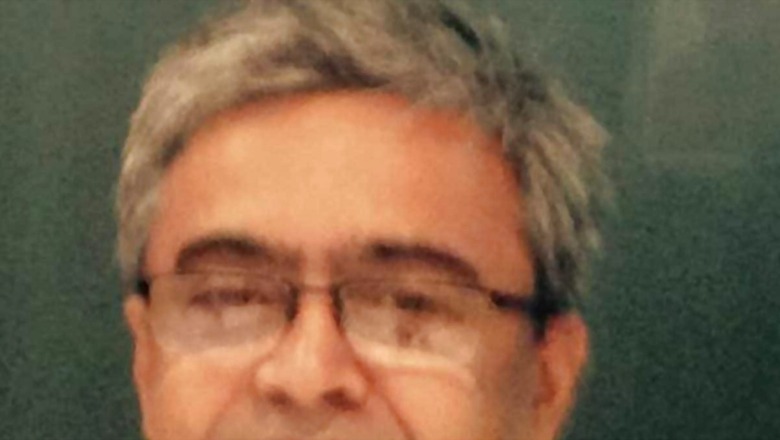
views
It is very unlikely that anyone has seen Ravi Sinha’s photos appear in the media before. That’s because RAW officials, junior or senior, mostly remain undercover, away from the limelight of the media and society, quietly carrying out their mission. Of course, someone appointed as the new RAW chief will get noticed within the nation and abroad. And now international intelligence agencies too would have their eyes on Sinha. The official designation of the RAW chief is Secretary, RAW, and the post is considered a part of the cabinet secretariat, but rather than being a pen pusher in the central secretariat, the job entails establishing a global spy network to protect Indian interests worldwide, to run it effectively and carry out secret operations, including the elimination of notable terrorists and anti-India elements.
This can be understood from the fact that, just like whenever there’s any terror activity in India, the fingers immediately point towards Pakistan’s spy agency ISI, RAW is usually held responsible for the elimination of any high-profile terrorist in Pakistan. Such is the dread of RAW in Pakistan that more books have been written there about this Indian spy agency than here.
Since its birth on September 21, 1968, RAW has steadily cemented its place in the world of intelligence. As its first chief, Rameshwar Nath Kao had created a strong foundation for the agency, and its 24th Secretary, Ravi Sinha, will now have the responsibility to take it to greater heights. Kao was renowned for operating from behind the scenes, and the same is said about Sinha. Only one or two photos exist of Kao, who remained RAW chief from the agency’s creation in 1968 till 1977, and this is also true for Sinha.
Background of Bhojpur
Ravi Sinha comes from Bihar’s Bhojpur district. The same Bhojpur, which has Ara as its headquarters, was one of the key centres of the 1857 War of Independence, and is also renowned as the place of freedom fighter Veer Kunwa Singh. The Bhojpuri language also gets its name from Bhojpur and it remains a widely used language in Uttar Pradesh and Bihar, is a force in the world of cinema and music, and is also an important language in over three dozen countries, including faraway Fiji, Mauritius, and Suriname.
Studied at St Stephen’s, cleared UPSC in 1988
Coming from a pure Bhojpuri background, Sinha’s education happened in one of the country’s most elite colleges, St Stephen’s in Delhi. He cleared the UPSC exams in 1988 and found a place in the Madhya Pradesh cadre under the Indian Police Service. In 2000, when the then Atal Bihari Vajpayee government created the state of Chhattisgarh from Madhya Pradesh’s tribal-dominated areas, Sinha became part of the Chhattisgarh cadre. But within a few months he moved to Delhi under central appointment as an official of India’s international intelligence agency RAW.
Has worked in RAW for about 22 years
Coming to Delhi from Chhattisgarh as an SP-level officer, Sinha worked in RAW for 22 years to rise to the DGP level and now has been appointed the agency’s chief. He has the experience of working at every level in every key department of the spy agency. While being no. 1 In terms of experience in the agency, his appointment isn’t based entirely on his seniority, but also on his mastery in operations, just like how Tapan Deka was appointed the IB chief.
When there was an announcement last year in June that Tapan Deka was being appointed the chief of India’s biggest internal intelligence agency IB which gathers information about anti-national elements to foil their endeavours. At the time, there was a lot of buzz over the fact that the Narendra Modi government picked an officer who was fifth in terms of seniority for the post, which is usually meant for the seniormost police officer of the country, who also has the right to put four stars on his vehicle.
Modi govt wanted to make fundamental changes to IB
Within a short amount of time, people understood that 1988-batch IPS officer Deka was picked over four other officers from the same batch who were senior to him in age and experience because the Modi government wanted to make fundamental changes to the nature of the IB. Prime Minister Narendra Modi and home minister Amit Shah felt that rather than focusing on political management, India’s premier agency should concentrate on operations to foil the activities of anti-national elements in time and eliminate terrorists and Naxals who plot to weaken the nation.
IB was known for the fact that it had all kinds of people in its closet and would put them forward depending upon the needs of the government. This was particularly true in the case of Kashmir, where the IB had infiltrated most political parties and other outfits. The agency had its eyes on all of them. The intent was to use them as and when required to maintain peace in Kashmir.
But the thinking of Narendra Modi and Amit Shah is different from those who were in power earlier. The duo doesn’t believe in bargaining for peace but in establishing it. In its second term, the Modi government has constantly worked on these lines. And for this reason, while the tenure of the chiefs of India’s premier intelligence agencies had been two years, they have been granted extensions under this administration based on performance. While the 27th IB chief Arvind Kumar remained in his post for three years instead of two, RAW chief Samant Goel had a four-year run.
‘Hardcore operations specialist’
Both Arvind Kumar and Samant Goel are 1984-batch IPS officers. Similarly present IB chief Tapan Deka and new RAW chief Ravi Sinha are both from the 1988 batch. Both are also known in intelligence circles as hardcore operations specialists.
Operations is considered the most important field in spy agencies. This involves constantly gathering information about a mission or target until the goal is achieved. This became the case since the creation of RAW. While the full name of the organisation is Research and Analysis Wing, it doesn’t just keep its head buried in books and computers, but carries out important missions with the help of human and technical intelligence.
RAW carries out key operations
This is also true for the post of the agency’s chief. While the designation is Secretary (Research), the job entails a lot more than research, including spreading the agency’s activities across the world to protect India’s interests and carry out missions abroad. Within three years of its birth, RAW played a key role in the creation of Bangladesh and today carries out operations in neighbouring nations such as Pakistan, Afghanistan, China, and Sri Lanka without claiming credit. Apart from playing an important role in eliminating India’s enemies hiding in Pakistan, it has also contributed to momentous military operations like the one in Balakot.
It is obvious that RAW has come a long way in the last fifty-five years. The need for this institution was felt in 1962 during the India-China war, when the Central Intelligence Bureau, or IB, couldn’t warn the country about the intentions and preparations of China in time. It was not that the IB didn’t have its network outside the country at the time. The first director of IB, Sanjeevi Pillai, had secured permission from the Nehru government to retain IB agents in Indian embassies of important countries like Pakistan, Germany and France. In later years, IB officers were also sent to China, Burma, Sri Lanka, and Arab countries.
In the era of Bhola Nath Mullik, who took over as the head of the IB after Pillai, this institution spread its wings abroad. But the tragedy with Nehru’s close aide and chief adviser Mullik was that while he continued to run forward policy in then NEFA, or today’s Arunachal Pradesh, while managing to impress Nehru, he couldn’t gather concrete information about China’s military preparations through IB’s network. Nehru remained under the influence of Mullik for his forward policy and extended his full support, and going against the opinions of then Army Chief General Thimayya and other senior military officers, Mullik went on establishing Indian posts in difficult areas where provisions and soldiers would take many days to reach. It was not possible to reach these places and fight. Nehru after the initial intoxication of “Hindi-Chini Bhai-Bhai” was so convinced of China’s weakness that he took a flight to Sri Lanka after an irresponsible statement without taking the opinion of Indian Army officials. He said in his remarks that the Indian Army had been ordered to uproot the Chinese infiltrators.
In 1962, India didn’t get sufficient intel about China’s activities
Mullik and Nehru were neither aware of China’s intentions nor of its extensive preparations. This was the reason why after this statement of Nehru, when China suddenly attacked, the Indian Army was not able to take it on and was defeated for the first time in the history of independent India. However, the reason behind this wasn’t the valiant Indian soldiers having poor weapons and clothes, but the Nehru-led negligence of the political leadership, which was responsible for not having provided adequate arms and ammunition to the Indian Army after Independence. One more mistake was made: Lt Gen BM Kaul, seen as a sycophant of Nehru, was given the responsibility of corps commander to respond to the Chinese attack. Obviously, Kaul, who had never played an active role in the battlefield before, was taken ill out of fear. And when the commander himself is missing from the front, then one can imagine what would have been the state of the junior officers and jawans.
After the defeat in 1962 as well as the lack of intelligence about China’s preparations, a need was felt to create an organisation that would specifically focus its attention on gathering intelligence from abroad, analysing it according to India’s needs, and then taking necessary steps. After the resignation of Krishna Menon from the post of defence minister following the defeat of 1962, his successor YB Chavan formed a committee under the leadership of Brigadier RN Batra, director of Military Intelligence, which studied the functioning of intelligence agencies such as the CIA, MI6, and prepared a draft on how a special intelligence agency can be formed to work abroad.
Chavan accepted this proposal, but by then Indira Gandhi had become the Prime Minister of the country after the death of Lal Bahadur Shastri. In such a situation, instead of creating this agency within the ministry of defence, it was decided to keep it inside the cabinet secretariat, so that it could have the control of both agencies. In fact, in that era of syndicates, Indira Gandhi had to focus more on her internal enemies than external ones. She was dealing with the activities of the satraps of the party for which she was already using the IB a lot.
From then till recent years, a major part of the operations of the IB was handling the then government’s political management and necessary steps have been taken for this. But Modi and Shah have changed this around very fast. Over the years, the functioning of the IB, which revolved around politics, has started focusing heavily on operations instead. As a result of this, the government has been successful in stopping terrorist activities. The IB is not only aware of the intentions of anti-national elements, but the timely sharing of necessary information with the police and military authorities has also helped in effectively eliminating such forces. Tapan Deka’s appointment as IB director last year is an indication of this intention of the government.
Sinha has a two-year term, but that may be extended
With the appointment of Ravi Sinha as RAW chief, Narendra Modi and Amit Shah have reinforced this thinking. As the head of this intelligence agency, which was separated from IB five and a half decades ago, Sinha’s tenure has been fixed for two years at present. If he continues to give results, then his term may also go up to four years instead of two, as happened in the case of Samant Goel. In recent decades, Goel was the first officer to serve as RAW chief for four years.
After Goel, the command of the organisation will now be with Sinha. Sinha also has experience and mastery in operations. After all, the command of the operations division, considered the most important wing of RAW, was with him for the past seven years. Sinha, who till now worked under Samant Goel, will now have a chance to come into his own and show his full potential.
It is well-known about Sinha that in the past few years, he has increased the use of modern technology to gather intelligence inside RAW. Those days are gone when only with the help of field agents RAW could operate effectively in the ever-changing world of terror, crime, and undercover work. If you have to fight against enemy countries and anti-national forces, a web of technology has to be laid and with the help of this, not only big missions and operations can be carried out, but the nefarious designs of the enemies of the country can be thwarted.
Sinha has experience as well as time. He is not only familiar with the functioning of all the wings of this intelligence agency, but he has a deep grasp of India’s needs. From the situation in Pakistan, Afghanistan, and China to India’s internal challenges, he has extensive handling experience in issues such as separatism in Jammu and Kashmir and the Northeast, as well as Naxalism.
Modi govt has fully backed intel agencies
Sinha will have no dearth of resources. The Modi government has neither dearth of funds for the intelligence agencies, nor of the necessary officers since coming to power. In recent years, there has been a massive influx of officers at the DIG and IG levels within RAW to make the organisation effective. During the time of Samant Goel, this trend has become popular, where earlier officers were inducted at the SP level.
If Sinha increases the use of technology with good officers and effective field agents, then this combination of human and tech intelligence can make RAW more powerful and effective in protecting the interests of the country from foreign forces and terrorists. This is also the hope of the Modi government from Sinha, who has the necessary experience to meet these expectations and he has strength and resources too. Indians will also be happy if RAW plays a bigger role in dealing with the country’s enemies, and the countries that sheltered them are left in disgrace and shame, and do not indulge in such nefarious activities ever again.










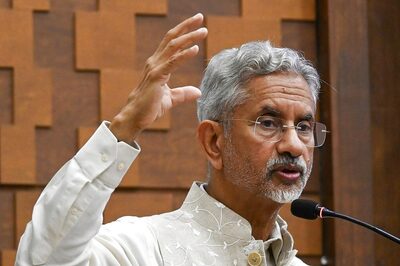
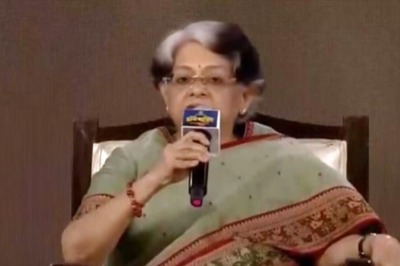

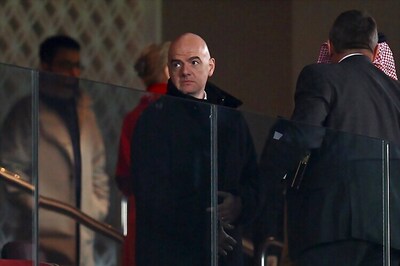
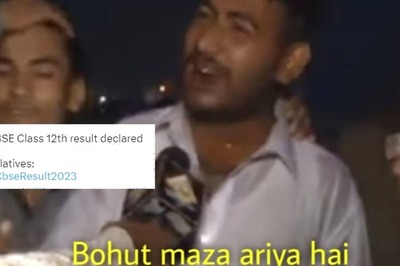
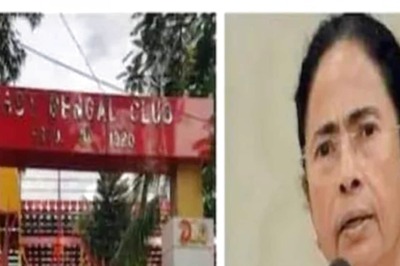
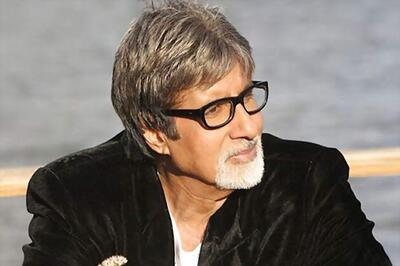


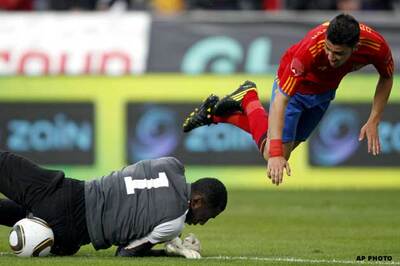
Comments
0 comment